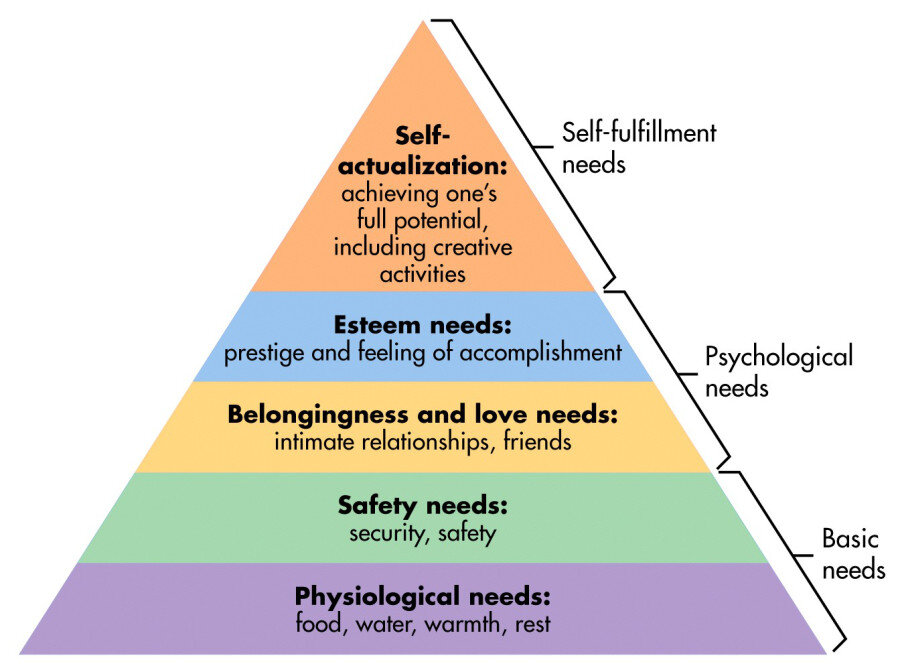What Do We Really Need?
Going into my third week of quarantine, I have had a lot of time, maybe too much time, to think. In between my frequent snacking and napping, I have been thinking a lot about the idea of need and needs. What do we really need?
Maslow’s Hierarchy of Needs is “a motivational theory in psychology comprising a five-tier model of human needs” (McLeod, 2020, para. 1). The lower down something is in the hierarchy, the more essential it is to human survival – the base of the pyramid is the most essential. As illustrated below, according to Maslow, the most essential human needs are physiological needs (food, water, warmth and rest), followed by safety needs, belongingess and love needs, esteem needs and lastly, self-actualization, or achieving one’s full potential.
During this time of self-isolation, much of our lives have been stripped back down to the most essential human needs – physiological and safety needs. In order to protect ourselves from this virus and flatten the curve, the government and society at large are asking each of us to stay inside. In doing so, I think it has become more and more clear to people what constitutes a need and what constitutes excess. Aside from what we need to survive, everything else seems greedy. As stated by Bandana Tewari, former editor-at-large at Vogue India, (2020), “while we sit in our homes contemplating a world that will, perhaps, change dramatically henceforth, we have to dig deep to make amends with our past behaviors, especially the blind consumerism that underpins so much of the fashion system” (para. 7). In many ways this virus has forced us to reassess consumerism and acknowledge what truly matters.
As fashion’s biggest names join the fight against Covid-19, switching gears towards the manufacturing of personal protective equipment and sanitation materials, many industry professionals believe that now is the time to address fashion’s unsustainable model (BOF Team, 2020). Futurist Lidewij ‘Li’ Edelkoort (2020) stated, “The virus, I think, can be seen as a representation of our conscience...it brings to light what is so terribly wrong with society and every day that becomes more clear....It teaches us to slow down and change our ways” (para. 2). In a period of such economic uncertainty, the fashion industry is being forced to acknowledge the difference between need and greed. While Covid-19 surely was not the way in which anyone wanted to address sustainability issues within the fashion industry, maybe a silver-lining is that this could be the thing that forces the fashion industry to make sustainability a lifestyle rather than a choice.
Bye for now,
McGee

